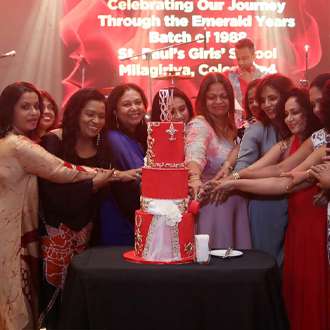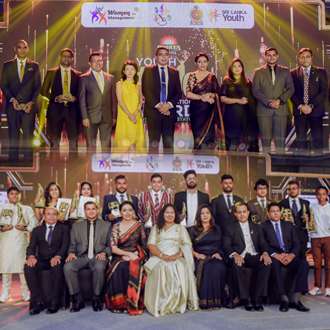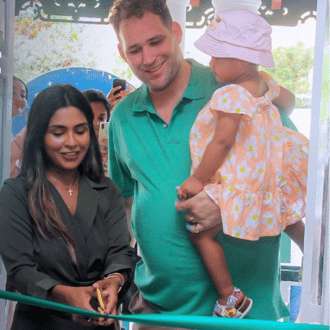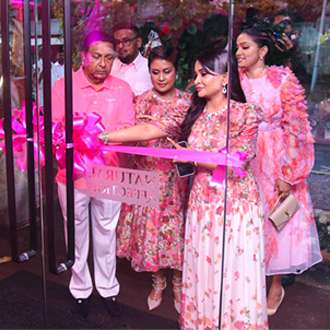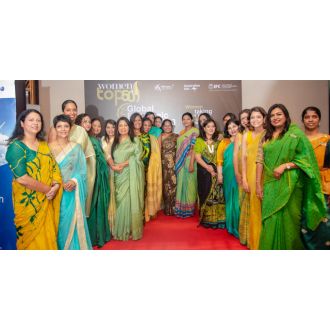

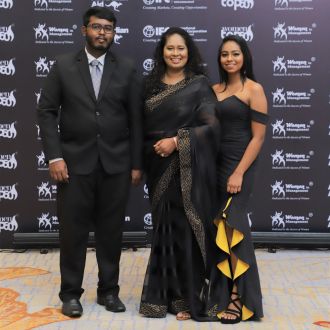
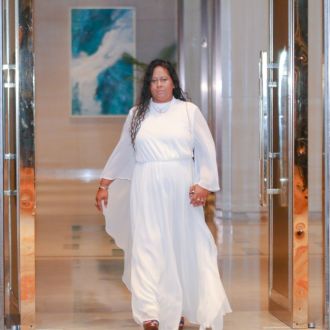
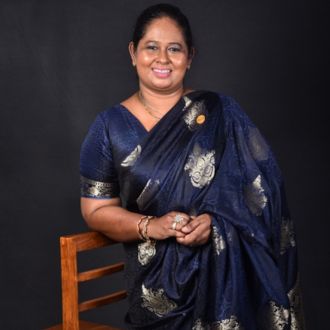
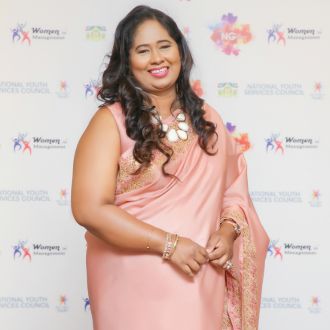
There can hardly be a more ardent champion for women's empowerment and ‘happiness goes where happiness is’ than the distinguished Founder/Chairperson of 'Women in Management' (Sri Lanka, Maldives, and Canada), Dr Sulochana Segera.
A leading social entrepreneur, Dr Segera is well-known for her role as a mentor, counsellor, and philanthropist. She is constantly developing the groundwork for her organisation with the goal of empowering women in business and fostering leadership qualities, for the benefit of their organisations, their stakeholders, and the wider community.
Not only has she inspired boards to adopt a more inclusive leadership style in their top-tier management structures but she has also succeeded, as a result of her initiatives, in guiding talented females to become exemplary, well-balanced leaders who have overcome adversity and serve as role models for others.
In this heartfelt interview, Dr Segera explains why it is important to promote women’s leadership and representation in the workplace, how organisations can support and retain women in leadership roles, and why being happy is more important than being successful.
Dr Sulochana Segera, it's a pleasure to chat with you.
1. Can we start with a little background information regarding 'Women in Management'? What kind of training and experience do members receive and what sort of impact will it have on their later careers?
Women in Management was established in the year 2010 as a professional networking organisation for women in careers, business, and professions. It is Sri Lanka’s first private sector-focused service providing a women's organisation.
WIM looks for members who are keen to grow as individuals, beyond their professions and the roles they hold in organisations. WIM provides them with a platform for self-development through networking and attending local and global training; we also provide opportunities to lead projects and practice leadership. Mentoring is one of the key benefits that members receive during their membership period.
2. Please tell us about some of the patterns you’ve noticed over the years regarding women at work and things they could have been doing better to advance their careers.
My personal view is that organisation requirements and cultures have changed drastically post-covid. Many organisations are now more open-minded about selecting employees on the basis of their productivity rather than their gender. This is one of the key positives for women in work. But I still feel women are looking at careers based on what they have heard, instead of learning to adapt and take the opportunities which are now open post-covid. Women should work not just for their families but for themselves too.
Many young women who left their jobs due to family commitments and other reasons are now looking for opportunities to work. This is where Sri Lanka is losing a skilled and productive workforce as we do not offer second careers for women who are ready to return to work. I think that more than anything, we need to be focused on how to get these productive women back into the workforce, while women who are keen to return should start not only looking for work but also catching up on some new skills and networking to get back into a job.
3. In some societies, even today, men expect women at work to act in a competitive fashion on a par with males, while family-focused women are stereotyped as being unreliable. What about women who want the flexibility to balance their families and their careers? Can they really be adequately committed to the organisation?
The world and working culture have changed after covid-19. Whether men expect it or not, women more than anything need to be competitive as a result of their knowledge and skills. Sexism at work is an old phrase, implying that men look at women on the basis of their ability to compete with men; but today’s women think more about their personal opinions and focus on delivering results rather than worrying about men’s opinions.
Many men think after-work and evening meetings are the best way of making the company successful or profitable, whereas a woman will often consider that eight to nine hours are enough to do this and she can also enjoy her family and social life.
Most men in our culture have a social life which they call ‘professional networking’. Women will tend to look at this as work, not socialising, and while they will ensure they attend where necessary, they do not make it a priority as it is just not in their working time zones. Therefore, we should understand that being a committed woman does not mean she needs to play the ‘sexism at work’ card. What she needs is to be smart enough to deliver results and be happy with her personal and social life, like any other human being.
4. What strategies do you believe are most effective for promoting women’s leadership and representation in the workplace? What are the key steps that organisations should take to support and retain women in leadership roles?
In my view, most companies do not understand that, if a woman is given an opportunity to take leadership, she not only brings her experience and knowledge, she also brings the feminine style of leadership, which involves empathy, strategic leadership, accountability and being results-focused.
Organisations need to introduce gender-neutral recruitment policies. This is one of the key elements – fewer women are offered opportunities to join organisations as so many recruitment policies and recruiters are gender-biased. Also, organisations should be paying for productive time in work rather than paying overtime. This is a key element, in that many women are judged by HR for not staying after work even though they have completed and delivered their results within the office time period.
Sponsoring women for mentorship programmes – many women find it hard to get mentorship sponsored for their career enhancement. Gender-neutral promotion policies to be introduced.
Introducing family commitment work time preferences. Some women need a support system from their organisation to be at work, and this small element of support will encourage them to give more to the company. It means if an emergency arises there can be a way that she can work from home or work flexible hours. This will better ensure that she delivers her results, instead of physically being in the office but not delivering adequate results.
5. Women’s empowerment clearly benefits the individuals who have been empowered, but what would you say are the benefits to society as a whole?
They say when a man is educated, a man is educated; but when a woman is educated, a generation is educated. Women by nature are givers. Her purpose in life is not just her personal goals. A woman's vision includes family and friends, and eventually society as a whole.
An empowered woman always speaks and leads, not just for herself but for everyone. For example, if a woman fails in a position, the general conclusion is that all women are failing in that position thereafter. But when a man fails, it is assumed that he is trying his best. Because as a society we expect women to get it right the first time and to be perfect.
Thus we allow men to fail and learn their way to leadership. Empowered women, however, address issues like accepting imperfect women in a perfect way. They make society become empathetic.
6. But isn't the cost of employing top-performing women in management greater than the cost of taking on men? And if this is even partly true – take maternity leave as an example – what do we need to do to engage and inspire male advocates/employers?
The cost of employing women is high because of the natural issue of women giving birth to humanity. Men are also part of that but, unfortunately, they do not carry the results – it is the woman who carries for him. And parenting is not only a woman's responsibility, both men and women have equal responsibility. I think that’s why many companies now provide paternity leave as well as maternity leave.
Further, if the company treats maternity pay simply as an extra cost, they should re-calculate and check her ROI to the company prior to confinement and after her return. Another perceived cost is the transport and safety of women. I think many companies still look at working late hours as productivity rather than an expense. If the companies were to undertake an accurate productivity calculation, they would find out that women who work during office hours are more productive and cost-effective than a man who works late. Many of these supposed additional costs are myths that have not been properly calculated by companies.
7. What practical steps do you advocate to reduce the obstacles faced by women, such as flexible working hours, remote working, maternity leave, and work-life balance?
I think companies have provided what they are capable of providing in that many now have flexible hours and daycare facilities etc. What we women should invest in is advocating for themselves. Women can work on becoming more assertive and proactive in advocating for their career goals, including negotiating salaries and promotions and securing challenging assignments.
8. What would you say to the argument that women have different perspectives, attitudes, and behaviours than men, and these can conflict with the policies and practices of male-led organisations? How do we go about breaking down these barriers that hold women back?
First women should recognise they are not there to compete with men but to compete for results. Women need to build confidence in how to negotiate and include themselves in male-dominated areas, rather than giving feminine excuses. If we want to lead we should think as a leader, not as a woman or man. Leadership has no gender - it is how we lead that shows our gender perspectives. The best way is to listen, agree and then make your point in your own way with validity. So that they will get used to women taking the lead and it will become a culture.
9. How would you propose that organisations should address and dismantle systems of gender discrimination and inequality?
I think it should start from the boardrooms and then the working staff/blue-collar employees. The cultures are built by leaders. If the policies are implemented by leaders at all levels, employees will automatically follow them. The board members should embrace diversity before they address their staff.
10. What have you found to be the most efficient way to work directly with governments that are resistant to change or slow to progress?
Working with officials who are keen for change, rather than those who give excuses. And also the private sector should stop trying to make state-sector officers lead like we do. The moment we start respecting and accepting their culture, the easier it will be to implement change and obtain productive results.
Now, let's talk a little more about the woman behind the public persona.
11. As a female leader, what has been the most significant barrier in your career? Have you been thrown off-course by gender-related roadblocks?
I have had a few experiences. One time, as an unmarried young girl, I was asked to sign an agreement at a job interview stating I would not get married or pregnant for three years. My father said never to sign a document that restricts a human right. Then, when I was delivering a professional training course with a gentleman in a leading Non-Profit Organisation, the female HR Head (she is now the Director of HR in a leading organisation) came out and requested me to remove my eye stud, stating I was getting too much attention. At the time I never questioned this, and I agreed to it. With time, I have realised many people like women to listen but not to question or speak. I have started to do the opposite and those who like that can remain, and those who don't can leave and close the door behind them.
12. What do you think helped you the most to make a career as a woman? What’s the biggest factor that has helped you be successful?
I think my interest for knowledge and keeping up-to-date with the world. I love to learn and challenge myself.
13. Tell me about the talk show that you host, 'Plain-T with Sulo'. Who has been some of your favourite personalities to chat with?
This is a show I love. Three guests stand out in particular. One was a Buddhist Priest – in fact, he is Tamil Hindu yet many do not know that, as he converted to a Buddhist Priest. When I asked him why religious leaders are preaching about women and not about spiritual leaders, he was shocked and yet he answered in a calm way. Another was a lady who spoke about corporate bullying and how she was a target, and then there was Nilshani, a young girl with Down Syndrome.
14. In practical terms, how do you empower yourself and the women around you?
I have only three things that empower me. These are the commands I start and end my day with, reminding myself of each one in front of the mirror. Firstly, I never forget why I am living – my two kids are the reason. Secondly, who I was and who I am today – that God has been too good to me and now I cannot give up on myself. Thirdly, the women I meet during my programmes give me hope – their problems and their smiles make me understand how blessed I am, and that I need to be there for them. It is more like a responsibility towards women.
15. What makes you a strong woman? What fulfils you?
I don’t think I am strong but I am happy as I am and that makes me somewhat strong. I feel satisfied and happy when a woman whom I've mentored has succeeded and when she becomes her own HERO.
16. Finally, would you complete this sentence for us? Being happy is way more important than being successful because …
… every happy person is a successful one.
Thank you, Dr Sulochana Segera, for sharing your time with us.
#interview #womenempowerment # socialentrepreneurship #womeninmanagement #fosteringleadership #womensorganisation #selfdevelopment #mentoring #professionalnetworking #leadership #genderneutral #inequality #discrimination #career # empower
